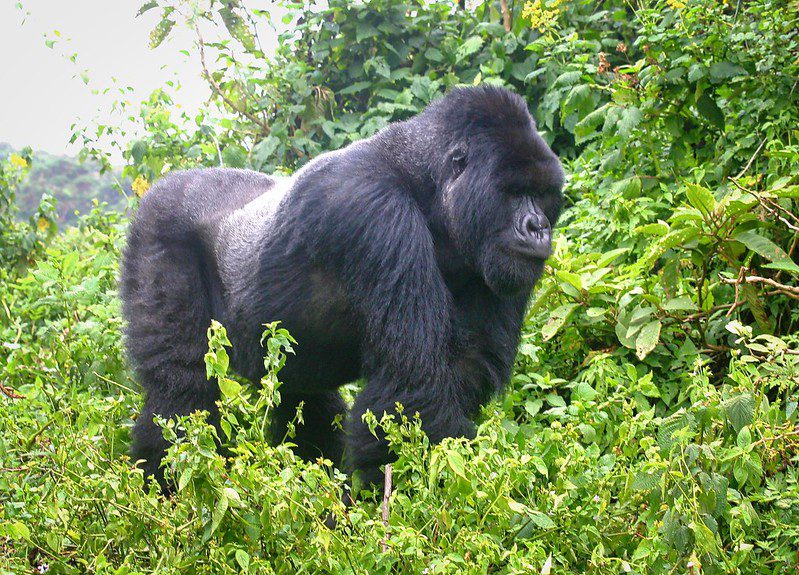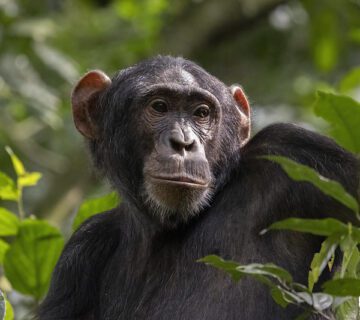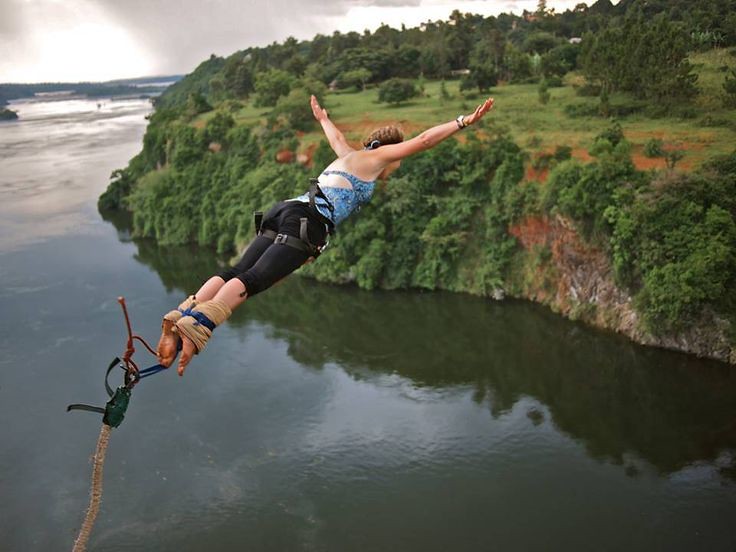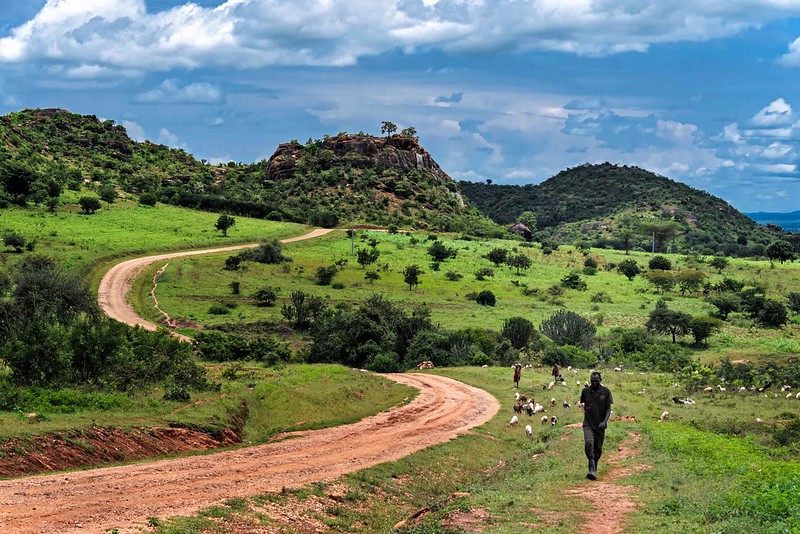Are you thinking of going to Uganda for a safari trip and gorilla trekking? Do you want to know what vaccinations you might need and what to anticipate from the local food on your Uganda safari? Look no further than our Top Travel Tips for a wealth of information on everything you need to know before booking and departing on your Uganda safari vacation.
Uganda is a small country with a lot to offer and is covered with national parks from head to toe. Rare mountain gorillas can be found deep in the misty forests of Bwindi Impenetrable National Park, as well as chimps playing in the shadows of the Rwenzori mountain range, lions prowling the savannah of Queen Elizabeth National Park, elephants and hippos bathing in the Nile River below Murchison Falls, and much more.
Uganda’s political history may deter travellers from visiting the continent, but peace has returned to “the pearl of Africa,” and tourism is on the rise. We have compiled a collection of Uganda safari advice and suggestions with our East African partners to ensure you have the most up-to-date information about visiting this diverse country. This will allow you to tour the nation and avoid any “bumps” along the way while having the trip of a lifetime.
What immunisations do I need to travel to Uganda?
Before travelling to Uganda, seek medical advice from your local healthcare professional and ensure you have had all essential immunisations. Polio, diphtheria, hepatitis A and B, and tetanus vaccinations are often recommended. Meningitis and rabies vaccinations are also recommended. Uganda Safari Tours: Travel Tips
Following an outbreak of yellow fever in April 2016, the Ugandan Ministry of Health now requires all visitors to produce proof of yellow fever immunisation.
Do I need malaria pills for Uganda?
Because of the high risk of malaria in Uganda, it is essential to consult with your doctor before travelling to decide whether malaria protection is required for the areas you will be visiting. In general, wearing long sleeves and light-coloured clothing, as well as applying insect repellent containing at least 50% DEET, will help you avoid mosquito bites. For further information on the dangers of malaria in Uganda, visit the CDC Traveler’s Health website or the NHS Fit to Travel page.
Is a visa required?
The majority of non-African passport holders will require a visa to enter Uganda. Make sure your passport is valid for at least six months after your intended travel date to avoid disappointment. Visa services are available at all points of entry into Uganda, including Entebbe International Airport, for $50 for a three-month single-entry tourist visa. You can also apply for an e-visa online before departing. Do you want to stay a little longer? Don’t worry, the Kampala immigration office offers $30 visa extensions.
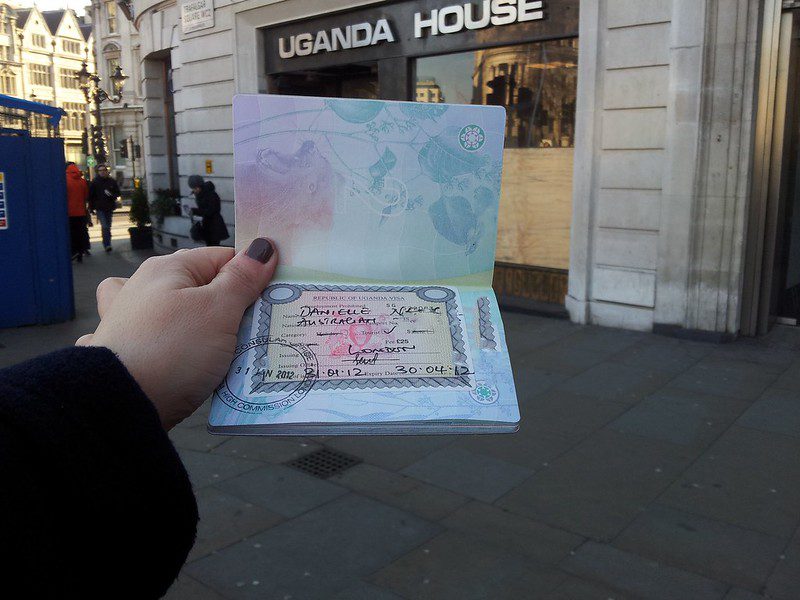
How is the food in Uganda?
Ugandan cuisine frequently consists of meat-based stews or sauce dishes eaten with ugali, a thick, doughy maize paste, or matoke, a cooked and mashed green banana. Stews sometimes incorporate beans and crushed nuts for texture, as well as cassava, yams, and sweet potatoes as side dishes, in addition to meat and veggies. Because of the country’s abundant rivers, Ugandans consume a lot of fish, particularly tiger fish and tilapia. Uganda is popularly considered Africa’s fruit bowl, with a diverse range of fruits available, including the well-known jackfruit.
For something a little different, how about some deep-fried grasshoppers? If you can’t eat these insects, there are other Indian-inspired dishes that go well with chapattis. As a dessert, many residents prefer mandazi, which is deep-fried flatbread coated with cinnamon or sugar. To accompany your meal, pour yourself a glass of pombe, a fermented beer produced from millet or banana. Uganda Safari Tours: Travel Tips
Travelling in Uganda? Eat safely!
When dining outside of expensive resorts, use caution because the meat’s quality and preparation may not always be suitable for a sensitive Western stomach. Food hygiene standards in Uganda are far lower than you may be used to, so avoid anything that seems unclean, expired, or improperly cooked. Eating salad and avoiding ice in your beverage are other good choices because these things may have been exposed to polluted water.
What kinds of souvenirs can I buy in Uganda?
Traditional African handicrafts are frequently available in Uganda at very low costs, making them ideal presents. Supporting local craftsmen by purchasing handmade, carved wooden masks and sculptures is a great way to ensure you bring something unique and real home with you. There are plenty more products available to spice up your home, such as weaved baskets, batik paintings, and bowls.
Visitors visiting Uganda who want to spice up their wardrobe don’t have to look far. Bright fabrics with wonderful African designs can be purchased and brought home unmade or transformed into garments by a local tailor. By having your own custom-made clothing produced, you will once again be assisting the community by providing them with a valuable source of income, and you can be certain that no one else will be wearing the same outfit as you back home.
On my Uganda safari, how will I get around?
The bulk of visitors arrive in Uganda via Entebbe International Airport, which acts as the country’s international entry point. The bulk of Uganda’s major roads are in good condition, but for exploring the country’s backroads, particularly in Uganda’s national parks and during the rainy season, a 4×4 safari vehicle is suggested. Our drivers and guides are competent in English, and our “All in Africa Safaris” adventurists always ensure that you are driven in private 4×4 cars.
Is negotiating permitted in Uganda?
The bulk of items will have fixed pricing at respectable stores in Uganda’s major towns, such as Kampala, and will not be bargained over. However, because stalls, marketplaces, and family-owned stores typically lack price labels, here is where you may begin haggling. The most important thing to remember while negotiating is to make sure that both the buyer and the seller are happy with the bargain after everything is said and done. It is also nice to keep your sense of humour and avoid angry behaviour.
What is the Ugandan currency?
The Ugandan shilling is the official currency of Uganda. Major currencies, such as Euros, British Pounds, US Dollars, South African Rands, and others, can be converted locally or before travelling. A handful of bureaus de change also provide exchange services, and big town banks provide ATMs. It is best to request bank notes in lower denominations since bigger notes can be difficult to convert at times, and smaller notes are beneficial for tipping and making little purchases. Traveller’s checks are not recommended since they might be difficult to exchange and come with high costs.
When should I travel to Uganda?
Although gorilla trekking is a year-round activity in Uganda, the muddy terrain and humid rainy seasons can make it more challenging and decrease your chances of encountering gorillas. To make your journey easier, we recommend travelling during the dry months of January to February and June to September. For the best game viewing on your Wildlife Uganda safari, we recommend travelling at the end of the dry season, when wildlife congregates around the national parks’ water sources.
What about Uganda’s safety?
Uganda is a safe and hospitable destination when conventional precautions are taken. Always listen to your competent guides when you’re among animals; have a torch with you if you’re in a wildlife area; and wear a life jacket if you’re on a boat. Uganda Safari Tours: Travel Tips
The boda boda, or motorbike taxi, is the most dangerous mode of transportation in Uganda. We recommend using a taxi or a private vehicle.
As Uganda emerges from the shadows of its troubled history, its warm populace welcomes tourists. The country invites seasoned travellers to explore its diverse landscapes and indulge in authentic African activities. Do you want to know more about visiting Uganda? Contact an All in Africa Safaris adviser for more information about a Uganda safari.
I’d want to go gorilla trekking. What do I require?
Uganda is the location to go gorilla trekking for the brave and physically fit. Trekking can be difficult due to the rare mountain gorillas’ deep hiding spots in the African bush and the steep mountain topography of Bwindi Impenetrable National Park.
The legal minimum age for gorilla trekking is 15 years old.
Anyone showing signs of an infectious condition will be denied access to the park.
A permit for gorilla trekking must be secured at least three months before the anticipated travel date. Only 96 licences are given every day, and the permission costs $600 during high season.
Only eight people can follow one gorilla family at a time in order to retain the intimacy and control of your Uganda gorilla trekking experience, and you can only spend an hour with them.
Keep in mind that, while trekking is certain, gorilla sightings are not guaranteed because this is the wild. If you are unable to locate the gorillas, you will receive a 50% return of your permit fee.
Bring a pair of sturdy hiking boots, a rain jacket for unexpected downpours, a long-sleeved shirt and trousers to protect against stinging nettles, and insect spray to keep mosquitoes away.
Uganda safari budget: How much money would I require for a Uganda safari tour?
When it comes to eating out and general sightseeing, Uganda is not an expensive nation. A nice meal (with alcohol) may be had for at least $6 USD. For two individuals, hotels and reasonable accommodations will cost around $50 USD. Furthermore, shared rooms and dormitories may be reserved for less than $10 USD.
Keep in mind that there are costs to visit Uganda’s national parks. The Uganda Wildlife Authority (UWA) imposed these predetermined tariffs. You should budget for around $40 USD. They differ in different parks and sanctuaries.
Uganda packing list: What Should You Bring to Uganda?
Pack comfortable, culturally acceptable attire as well as rain gear for your road trip to Uganda. Here are some more goods you should bring with you if you visit Uganda:
Wearing clothes that is excessively tight is not recommended. Long sleeves, on the other hand, are ideal for casual shirts.
1-2 bottoms (e.g., jeans or trousers)
one long-sleeved shirt, one fleece, one sweatshirt, one jumper or one light jacket
2 to 4 pairs of socks.
2 or 3 pairs of comfortable walking shoes.
Bring one umbrella, poncho or raincoat during the rainy season.
Bottle of water.
Sunscreen
Don’t forget to bring your camera, a backup battery, and chargers for your electrical devices.
Choose an outstanding pair of hiking boots if you like hiking and going on trips.
Insect repellents are recommended due to the frequency of malaria in Uganda.
Although wearing long dresses or skirts or covering your head is not required in Uganda, it is recommended if you want to avoid unwanted attention.

